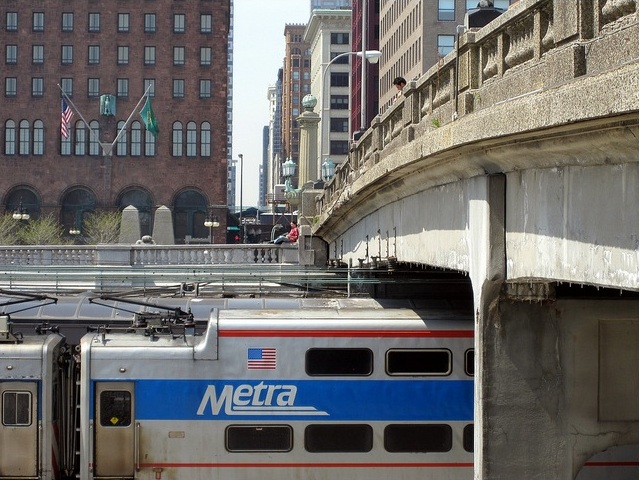Metra Lacks Modern Tech Amenities for Riders, Study Finds
By Jim Bochnowski in News on Jul 14, 2015 8:50PM
Even as more people use their phones, tablets and computers during their commute, the city's Metra stations are woefully unfriendly to the modern, smartphone-carrying rider, a DePaul University study found.
The study, published by Depaul's Chaddick Institute for Metropolitan Development, found that although more people are using Metra as their primary mode of transportation, the system is not providing the amenities needed by the typical rider—such as electronics charging stations and Wi-Fi.
Along with an overall growth in Metra ridership since 2012, DePaul researchers found that over the last five years the number of commuters who are "engaged with technology," encompassing everything from listening to music to watching a movie, has risen from 25.6 percent of all riders to 56.2 percent. The number of commuters engaged in "electronic tasks illegal while driving," meanwhile, has risen from 13.9 percent to 44.0 percent over the same period of time. Clearly, as we become more attached to our devices, we want to take modes of transportation that allow us to use them at the same time.
Despite these growing trends, the researchers argued that Metra has not done enough to cater to these individuals. While the researchers admit that, yes, Metra has installed power outlets in new cars, has made arrangements for electronic ticketing using the Ventra system and has plans to make their cars Wi-Fi compatible, there's still work to be done.
For example, of the city's five major downtown commuter rail stations, LaSalle Street, Millennium Station, Ogilvie, Union Station and Van Buren Street, only LaSalle Street has decent signal strength in the commuter waiting area, only Ogilvie has power outlets in the waiting area and only Millennium Station has in-station Wi-Fi.
Joseph Schwieterman, the head of DePaul's Chaddick Institute for Metropolitan Development, told the Chicago Tribune that those stations should have all of those amenities on offer.
"Wi-Fi and power outlets in stations are what air conditioning and water fountains were years ago," he said. "We take them for granted and feel something is missing if they are not there."
The city is already trying to escape its reputation for having one of the country's slowest average commutes. Catching up with the times technology-wise seems like a pretty easy way to encourage public transportation use and make those long waits easier for riders.
